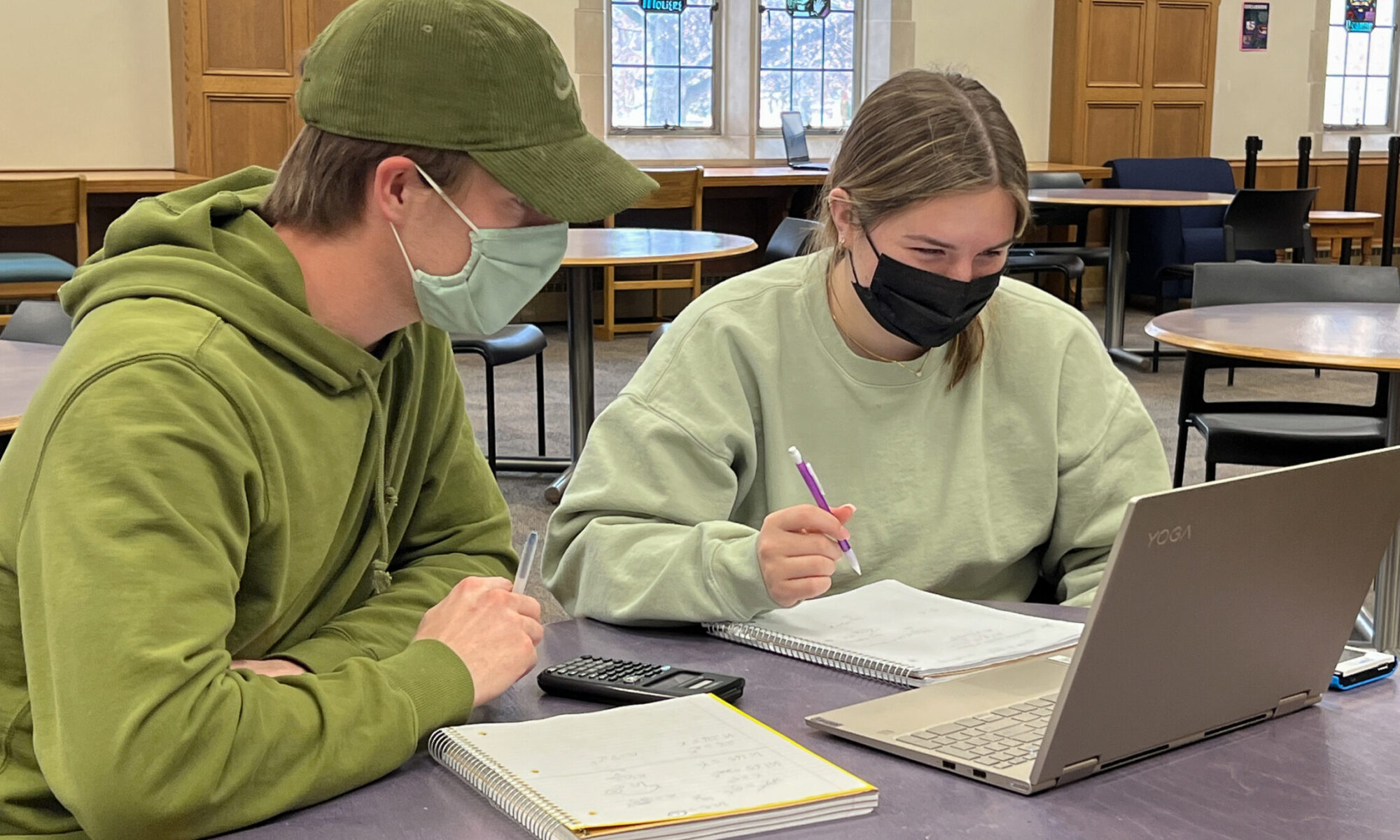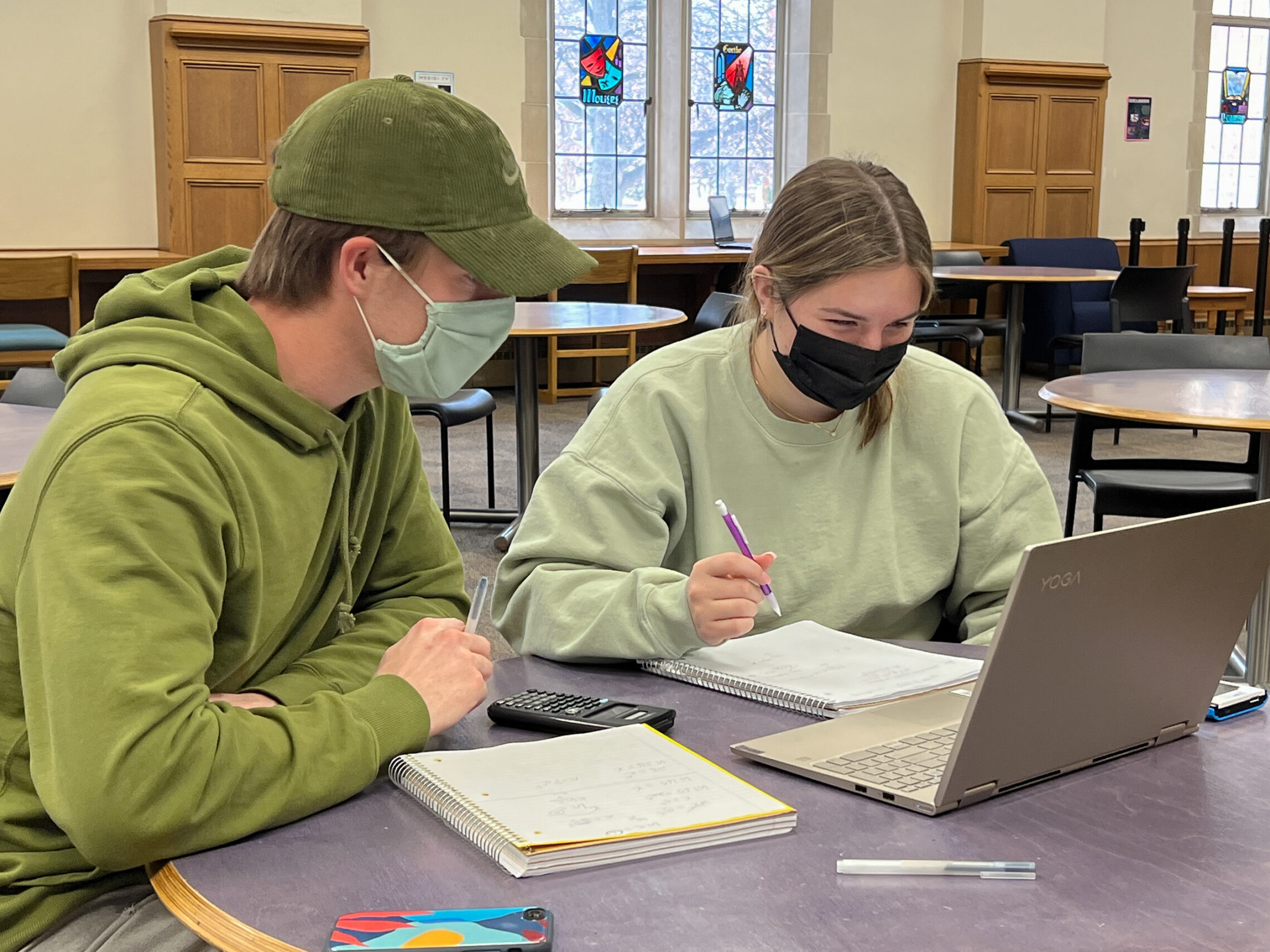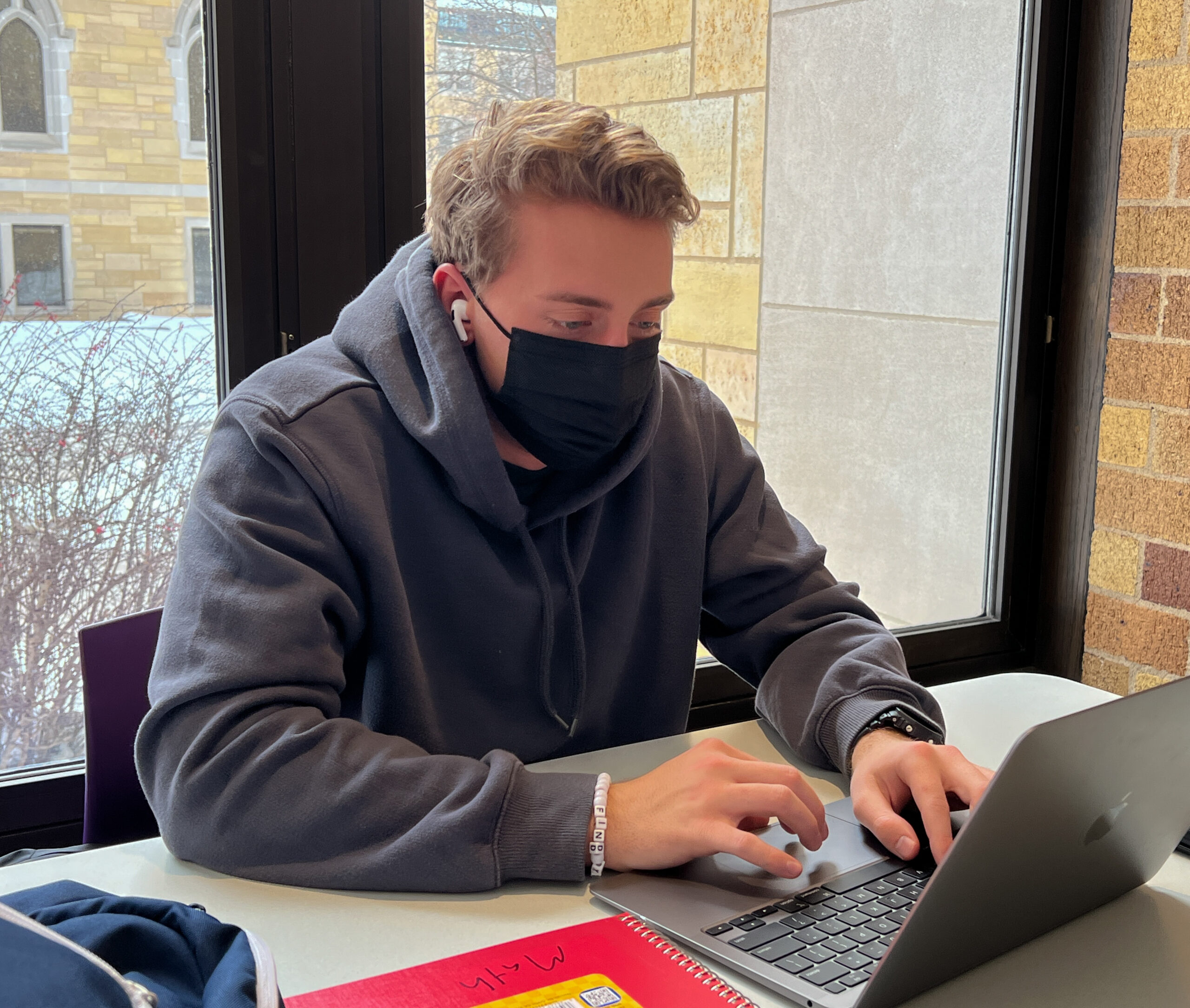As the two-year anniversary of the COVID-19 pandemic has come and gone, COVID-19 regulations have eased up across the United States and St. Thomas’ campus. However, one thing has remained constant throughout the pandemic: many U.S. citizens’ mistrust in science.
Disaster arrived when COVID-19 sparked a global health crisis. Medical technology could have led Americans to the end of the pandemic, but many Americans did not trust in what they did not know.
Twenty-nine percent of Americans said they have a “great deal of confidence” in medical scientists to act in the best interest of the public, according to a 2021 Pew Research Center poll. The percentage is even smaller for Republicans: only fifteen percent express a great deal of trust.
St. Thomas biology professor Colin Martin said improving scientific education at all levels of school would strengthen Americans’ trust in science and lead to a higher level of general understanding around the topic.
“One of the major problems that we’re experiencing in the pandemic context is just the lack of familiarity that a lot of people have with how the scientific method works,” Martin said.
St. Thomas College Republicans Club President David Povolny said the lack of consistency in scientific information released to the public caused Americans’ trust to fade away.
“When you have institutions tell them one thing, and then in another month they tell them a completely different thing, and they just say ‘well the science has changed; now we have to do this,’” Povolny said. “(It’s) taking people’s trust for granted.”
Martin said that in the COVID-19 pandemic, guidelines on masking policies and lockdown changed based on new evidence.
“Science is a process,” Martin said. “We work on getting better and better information, but that takes time. We may be wrong at first; we may not have complete information, so I think people get frustrated when they are paying more attention to scientific information that they’re used to.
“If all you want is ‘just tell me the right answer,’ we don’t always have the right answer, or the right answer may change,” he said.
Although only 70% of Americans are fully vaccinated for COVID-19, St. Thomas’ campus-wide inoculation rate has reached 92%.
St. Thomas Center for Well-Being director Luis de Zengotita, who helped coordinate university-wide pandemic response as a member of the University Action and Response Team, said the university focused on encouraging students to think critically and get vaccinated if they can.
“Everyone needs to realize that this is a requirement of being part of our community, for the community’s safety,” de Zengotita said. “As a higher education institution, we foster individuals acting wisely.”
Though St. Thomas senior administration made the decision to require COVID-19 vaccines based on guidance from the Minnesota Department of Health and the Centers for Disease Control and Prevention, the university received messages opposing the mandate, de Zengotita said.
“Polarization and misinformation can amplify some of the mistrust in decisions like this,” de Zengotita said.
Povolny, however, said giving people the choice and encouraging them to opt-in is a more effective policy than a vaccine requirement.
“I think there’s many good reasons why it shouldn’t be a mandate,” Povolny said. “One, because the science does not support it — it is not effective; and two, it violates people’s rights.”
On Nov. 30, 2021, the university announced it would no longer accept conscientious objections, which can include reasons related to the lack of trust in the efficacy and safety of the vaccine. However, the university still allows students to request religious and medical exemptions to the vaccine requirement.
“When there was an emergency authorization (by the CDC), there was a conscientious objection available,” de Zengotita said. “But once the vaccine entered full authorization, to me that’s where, following science and following guidance of public health organizations, the decision was made to switch it.”
Besides the COVID-19 immunization, St. Thomas also requires students to be vaccinated against measles, mumps and rubella. These vaccines have the Food and Drug Administration’s full approval. Despite this, recent outbreaks of measles show that the anti-vaccine movement can create disastrous public health results.
“When you follow the evidence, regardless of whether or not it’s related to this vaccine or other aspects of your life, if you follow the scientific principles of discovery… you are going to be safer,” de Zengotita said. “If you mistrust science, you are going to be mistrusting things that work and are proven to work.”
Luana Karl can be reached at karl2414@stthomas.edu.





